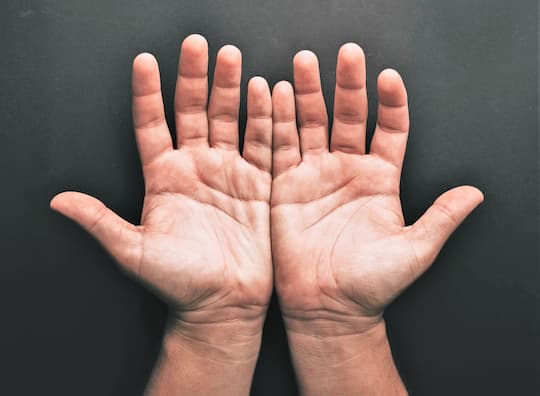How to reduce ‘bad’ cholesterol levels in 30 days without statins, using only natural, healthy foods.
The most well-known side-effects of statins — the cholesterol-lowering drugs — are headaches and muscle aches.
Other common side-effects of statins include stomach pain, dizziness, constipation and feeling sick.
However, some people taking the cholesterol medication report problems in their hands and feet.
The sensation of pins and needles is usually caused by the blood being cut-off to a part of the body for a period.
However, some people report pins and needles in their hands and feet as a side-effect of taking statins.
Statins lower LDL cholesterol
Statins are usually used to try and lower levels of LDL cholesterol, known as the ‘bad type’ of cholesterol.
If left untreated, this type of cholesterol can cause the arteries to block and serious complications can ensue.
A high level of the ‘bad type’ of cholesterol is a major risk factor for heart disease.
It affects around half of adults over the age of 50-years-old.
Statins work by blocking the body’s mechanism for producing cholesterol.
Statins are also prescribed for people who have a high rate of cardiovascular disease in their family or have a condition that leads to high levels of cholesterol.
New alternatives to statins
Because of the side-effects of statins, researchers are looking for alternatives to lower cholesterol.
One method which has recently attracted attention is the use of natural foods with cholesterol-lowering properties.
One study gave patients foods with real ingredients, such as walnuts, dark chocolate and smoothies containing strawberries and bananas.
The foods used typically have high levels of plant sterols, fibre, omega-3 fatty acids and antioxidants.
The results showed that cholesterol levels were decreased by 9 percent on average in three days, with some seeing reductions of 30 percent.
Dr Stephen Kopecky, the study’s first author, said:
“Based on the outcomes seen in our study, using this type of food as medicine approach expands the options for medical professionals and patients.
Many patients who are unwilling or unable to take statin drugs may be able to help manage their high cholesterol, or hyperlipidemia with a realistic food-based intervention.”
Diet lowers cholesterol
Studies have consistently found that ‘bad’ cholesterol levels can be lowered by diet.
For example:
- A plant-based diet — particularly a vegan diet — can substantially lower total cholesterol.
- Eating barley and barley products lowers the levels of two types of “bad” cholesterol; LDL (low-density lipoprotein) and non-HDL (non-high-density lipoprotein).
- Eating almonds improves the levels of ‘good’ cholesterol as well as removing ‘bad’ cholesterol.
The difficulty it getting people to change their habits when a pill is much easier to take.
Dr Elizabeth Klodas, study co-author, said:
“Nutrition contributes to 5 of the 7 modifiable risk factors for heart disease, but getting patients to change diet is incredibly challenging.
This study underscores what’s possible when we succeed. The implications of attaining such a significant cholesterol impact from a small food based intervention are profound.
We could change the health of our country in 30 days.”
The study was published in the Journal of Nutrition (Kopecky et al., 2022).

